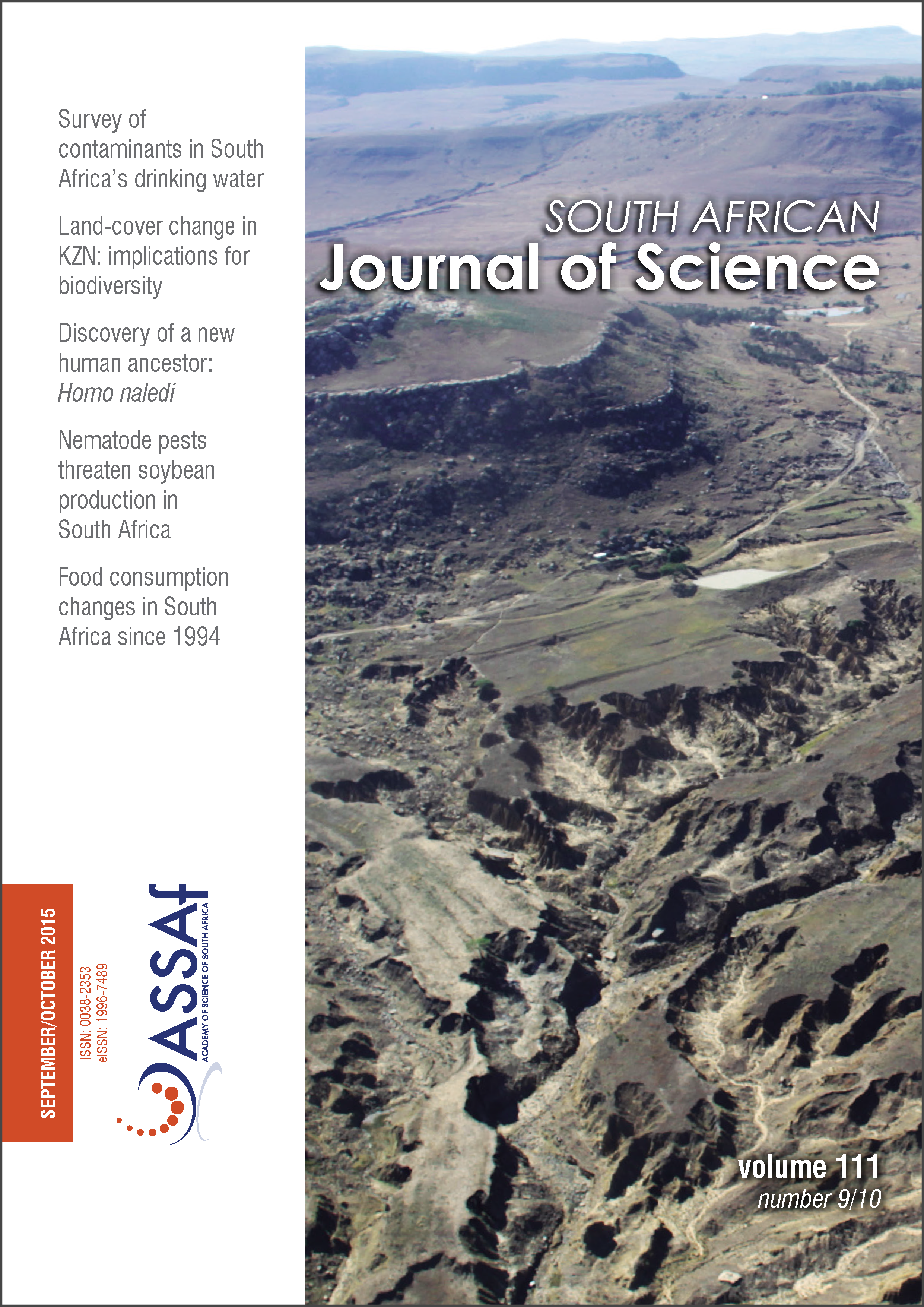Food consumption changes in South Africa since 1994
DOI:
https://doi.org/10.17159/sajs.2015/20140354Keywords:
food consumption data, food consumption shifts, packaged food, beverages, public healthAbstract
Food consumption patterns in South Africa have changed dramatically over the past decades and likely will continue to change over the coming decades. Various food-related studies conducted over the last few decades indicate that food consumption shifts in South Africa have been towards a more Westernorientated diet, with nutritional consequences contributing to increased obesity and other non-communicable diseases. Several sources of data may be used to examine patterns in food consumption over time. Each of these methods has its own merits depending on the desired outcome, but are difficult to compare as each measures different levels of dietary information. As a result of the lack of regular national or comparable food consumption data in South Africa, the objective of this study was to establish, through the use of databases (FAOSTAT food balance sheets and Euromonitor International© Passport), the broad food and beverage consumption shifts in South Africa since 1994. Our findings indicate that food consumption shifts have been towards an overall increase in daily kilojoules consumed, a diet of sugar-sweetened beverages, an increase in the proportion of processed and packaged food including edible vegetable oils, increased intake of animal source foods, and added caloric sweeteners, and a shift away from vegetables. The largest shifts in food consumption were observed for soft drinks, sauces, dressings and condiments, sweet and savoury snacks, meat, and fats and oils. Convenience, health and nutrition, and indulgence were the main drivers of the increase in consumption of packaged foods and beverages. These shifts in food consumption are concerning as relates to their fat, sugar and salt composition and potential effect on public health.
Published
Issue
Section
License

All articles are published under a Creative Commons Attribution 4.0 International Licence
Copyright is retained by the authors. Readers are welcome to reproduce, share and adapt the content without permission provided the source is attributed.
Disclaimer: The publisher and editors accept no responsibility for statements made by the authors
How to Cite
- Abstract 5611
- PDF 8691
- EPUB 245
- XML 267













.png)